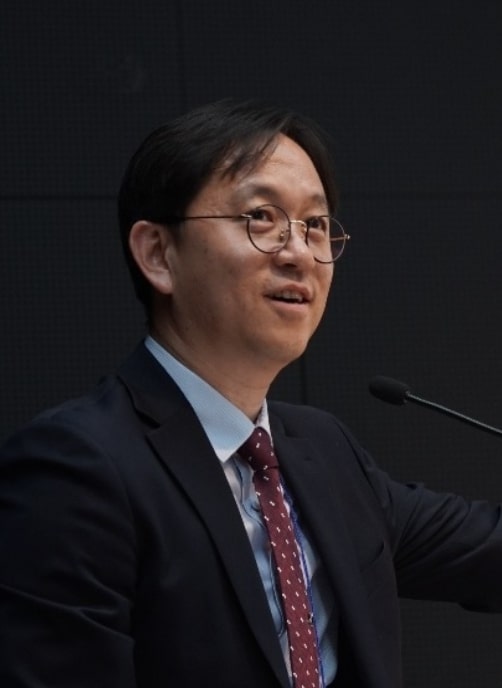
Personal revenge has become an indispensable success factor in Korean media industry these days. The Glory, which is about taking life-risking revenge on school violence aggressors, and Taxi Driver, which offers opportunities to revenge for victims who are discouraged to continue their lives, are revenge dramas that received an enthusiastic response from the public. In the dramas, victims are not protected by the law, and aggressors are not properly punished. Instead of relying on public power, the main characters decide to get revenge on the aggressors in their own ways, evading the law. Viewers feel catharsis with good triumphing over evil in the drama and argue that the drama reflected the unjust reality well. However, recently, personal revenge is not simply confined to fiction. It has begun to appear in real life as well, becoming a controversial issue in Korean society.
The Background of Personal Revenge in Media
The concept of personal revenge can be traced back to ages long ago. Seneca, a Stoic philosopher from Ancient Rome, claimed that rage is a desire to obtain revenge on injustice and that injustice should be resolved through rational edification, not revenge. Rage and revenge were considered futile emotions that went against human nature in those days. However, ironically, the prohibition on personal revenge contributed to the spread of revenge dramas. For instance, Hamlet, which is an acclaimed masterpiece by William Shakespeare, is also a revenge play that was greatly popular at the time. In the 21st century, the number of media content with a revenge theme highly increased in the Korean media industry. Unstable employment and the widening gap between rich and poor due to the foreign-exchange crisis in 1997 caused a sense of resentment to prevail in society. Media content reflected a devastated society with intense competition and worked as a proxy mechanism for strong emotional release toward reality at the same time.

According to Lim Jong-soo, a professor from the Department of Media Communi-cation at Sejong University, the narrative of didactic morality has existed for a long time. In theory, good is rewarded, and evil i s p u n i s h e d . However, since that is not always the case, it caused the media to vicari o u s l y r e s o l v e desires of punishing evil through personal revenge.

Additionally, Ryoo Woongjae, a professor from the Department of Media Communication at Hanyang University, explained, “The fact that our society is becoming increasingly tolerant of personal revenge shows that the social solidarity in public power is faltering amid intensified injustice, which gives legitimacy to personal revenge.”
Causes of Personal Revenge in Real Life
Personal revenge is no longer a mere topic of entertainment; it has begun to permeate real lives. In 2021, a man who broke into an infamous sex offender Cho Do-soon’s house and struck his head with a blunt object was sentenced to a year and three months in jail. Although he had committed an illegal act without any doubt, there was widespread public opinion praising him as a hero, since the public was enraged when Cho Do-soon was sentenced to only 12 years in 2009, despite having 18 convictions including numerous child sex offenses. It showed that there was a high social dissatisfaction with the low penalty level in the current legal system. According to a 2021 survey study on national legal awareness published by the Korea Legislation Research Institute, 87 percent of the public thought that the current punishment system for sex crimes was insufficient. This also indicates that there is a large disparity between the degree of public sentiment and sentencing guidelines.

Park Soon-seok, a professor from the Department of Sociology at Hanyang University, said, “The current legal syst e m i n K o r e a leans toward the reformation of criminals. Even though punishment may not be a silver bullet, it is time for the penal system to be reinforced.”
The development of technology is another factor that facilitated personal revenge in real life. Unlike in the past, the Internet formed an environment where victims can build solidarity, gain public support and legitimacy at the same time. Especially, social media has enabled individuals to realize personal revenge. Professor Lim added that individuals tried to satisfy their desire for “good triumphing over evil” through social media these days.
What Does Personal Revenge in Real Life Lead to?
Many people enjoy watching contents that deal with personal revenge because they provide a sense of justice that is not always achieved in real life. They also allow individuals to relieve their frustration towards societal issues, such as injustice and corruption. Moreover, according to professor Ryoo, personal revenge has a favorable function with respect to the fact that individuals share a sense of democracy and agonize to find a solution together.
However, personal revenge in real life can cause a range of negative consequences. First, it can break legalism by allowing individuals to take the governmental authority into their own hands. For instance, in 2020, there was a case in which a man murdered his hometown friend who had raped his girlfriend. While some people sympathized with him in some degree, the court sentenced him to 25 years in prison. The justice department pointed out that it was a brutal and deliberate murder that included mutilation of the corpse and the victim had already been put on trial on a charge of rape. Some argued that the punishment was too heavy, whereas others criticized the offender for disturbing the exercise of legitimate state punishment power stipulated in the judicial system.
Personal revenge can also lead to a vicious cycle of violence, which eventually increases the total amount of crime. In addition, it can result in accusations of a “witch hunt,” a situation where a group of people with a vindictive attitude aggressively targets someone for perceived wrongdoing without proper evidence. Since the spread of information has expanded, single word of an individual’s false assessment can bring about a tragic situation that can change someone’s life. In fact, in 2020, “Digital Prison,” a website that arbitrarily disclosed the private information of a sex offender, argued that Chae Jeong-ho, a professor from the College of Medicine at Catholic University, tried to purchase sexual exploitation content and revealed his personal information. When it turned out not to be the case, it was after Professor Chae had already suffered from malicious accusations. Therefore, personal revenge should be approached with caution, as it can have adverse effects like violence and baseless accusations, potentially harming innocent people.
How Should Our Society Respond?
Society should address the underlying issues that caused personal revenge to emerge in the first place. This includes strengthening the legal system to ensure proper punishment for wrongdoings, and providing adequate support and protection for victims. Professor Lim said, “The law should be fair to everyone, but it is not the case. Nevertheless, personal revenge is not the proper way to deal with injustice. Rather than to punish an individual through personal revenge, the law should be just beforehand.”
Media content with a theme of personal revenge can also contribute to society. They can raise awareness of the issues they portray and spark discussions on the flaws of the current legal system. However, as Professor Park pointed out, “This does not always lead to actual social changes. They tend to be simply consumed as interesting and provocative entertainment. It is hard to expect too much from the media, but it is worthwhile when people pay more attention and create a positive discourse. There is a need for a change in perception of and institutional changes in the legal system, and discussions on the level of punishment for specific crimes should also be developed.” In conclusion, society should actively address the root causes of personal revenge and cooperate systematically to create a fairer environment with a respectable legal process.

